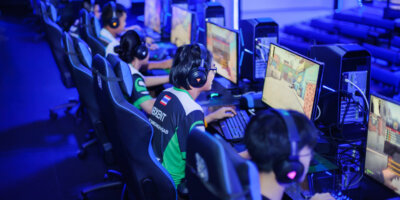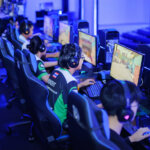• Education and AI have been at loggerheads since generative AI arrived.
• But like other technologies before it, AI has now been accepted in the classroom.
• That means we need a new, AI literate generation – but how do we get one?
There’s been a tense dynamic between AI and education since generative AI became commonplace, sparking fears that it would enable mass cheating in schools and at collegiate level.
While many Western countries banned ChatGPT from schools, Japan was one of the first countries to not only implement AI in learning but also publish guidelines for its use in the classroom.
Since late 2022, there’s been a significant shift in the way that educators view AI. The ubiquity of the technology has made it impossible to ignore and ultimately its existence, and the changes it will bring, have been accepted.
In the same way computers, then the internet, became too indispensable to leave out of education, so generative AI has joined the curriculum.
But what does AI mean for education?
On the one hand, the tech is a handy tool for learning: it can be used to create interactive games to teach children academic and social skills, and at a higher level used to summarize long passages of text for in-class discussion or to generate talking points.
The revolutionary step taken by the Japanese education ministry was to outline the importance of education about AI itself, stipulating that students should be aware of the advantages and disadvantages of AI before using it.
It’s unlikely that the majority of educators will by sheer coincidence be experts in the field of generative AI. That’s why new ways of teaching need to be introduced so that the next generation of teachers are AI literate.
How to teach AI?
Gamification is a hugely effective way of engaging students. The success of Duolingo proves that: its game-like interface and the potential for competition on the app keeps users coming back daily.
In the APAC region especially, gaming is a huge market. There are 1.5 million identified gamers across the region, and they spend more time gaming than the global average – and register highest engagement levels.

Other massively popular games are available for your AI education.
That makes it the ideal place to launch AI Arena, an educational offering from ArenaX Labs that uses the advantages of gamification and competition in education to teach AI literacy.
Gen Z and Gen Alpha cite gaming platforms as their go-to for feeling less anxious and stressed. As Asia continues to dominate the global gaming market in terms of time online and engagement, why would we not use interactive gameplay for education?
We spoke to CEO Brandon Da Silva and COO Wei Xie about their vision for the future of AI education.
Part of their philosophy is that it’s imperative that everyone understand the workings of AI, beyond its mere usage. AI Arena, which is a player-vs-player fighter game, is aimed at a younger demographic because, according to Brandon, “younger people are more proficient, because [technology] is almost like a second language to them […] they grew up programming. I feel like it’s important to equip kids in time for this new world that’s ahead of them.”
Wei pointed out that “there’s a structural deficit, a supply and demand balance, in terms of the people in the world that actually understand the technology, relative to how quickly this technology is moving.”
Not enough people actually understand how to build solutions with AI, how to improve and manipulate it so that it can solve different problems. “That’s the layer of understanding and aptitude that [they’re] trying to open the window to for the younger generation.”
We’re already playing catchup with the rate of AI’s uptake compared to education on it. The younger generation spends so much time not only actively gaming but also streaming content to learn tips and tricks, it makes sense to tap into this enthusiasm to learn.
AI Arena requires players to train AI models to battle each other autonomously. The competitive element will engage students in learning more effectively than more traditional teaching methods might.

The format is familiar, but players “teach” their autonomous fighters the winning moves.

Programming a player’s moves – harder than spamming all the buttons…
Traditional institutionalized education is already being disrupted by AI, so professors are thinking about more creative ways to integrate applied learning into their curriculums, says Wei.
“This is a very interesting way to package a curriculum or coursework […] And because it’s also competitive, you can use it as midterm project work, not only to get people engaged, but it’s actually a very interesting way to evaluate how people are learning information as well.”
For now, the key demographic ArenaX is catering to is the adult gaming market, from ages around 18-30. But this is by no means a limitation, and despite a current focus on college level students, the core infrastructure has intentionally been designed so it can be scaled back and applied to any game.
The game isn’t an attempt to replace Masters or PhD programs, of course. Rather, it’s a gateway for students to get into AI.
Getting familiar with an AI world
Brandon says we should “think about this as the starting point to get familiar with these concepts, understand how machine learning algorithms work.”
Next on the horizon from ArenaX is a research platform where users can start building their own code.
We are still relatively early in the lifecycle of AI. That’s why the future of the technology is so obscure. The best way to prepare is by equipping as many people as possible with a core understanding of the workings of AI.
For more on AI Arena and ArenaX, visit their sites. Brandon Da Silva and Wei Xie can both be found on LinkedIn.
The post Gaming to learn – the latest in AI education appeared first on Tech Wire Asia.


























